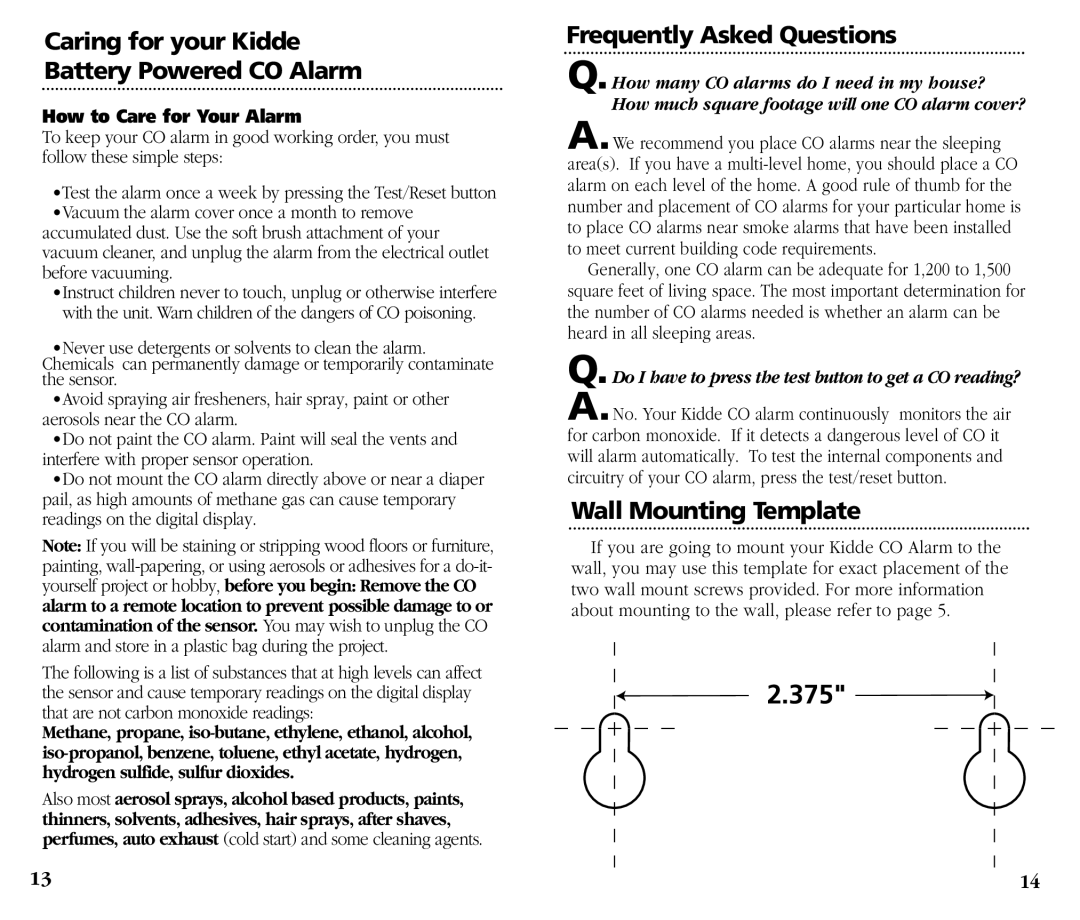KN-OOB-B specifications
The Kidde KN-OOB-B is a leading-edge carbon monoxide (CO) alarm designed to provide safety and peace of mind for households. This essential device is engineered to detect the presence of carbon monoxide—a colorless, odorless gas that can be fatal in high concentrations. The KN-OOB-B features advanced sensor technology and an array of characteristics that position it as a top choice for CO detection.One of the main features of the Kidde KN-OOB-B is its digital display, which not only shows CO levels in parts per million (ppm) but also provides critical information on battery status and alerts. This user-friendly feature allows homeowners to monitor the CO levels in real-time, making it easier to respond to potential dangers promptly. Additionally, the unit is equipped with a peak level memory function that records the highest levels of CO detected, helping users track exposure and maintain safety.
The Kidde KN-OOB-B employs microprocessor technology, which enhances its detection capabilities. This technology ensures precise monitoring and reduces the likelihood of false alarms, a common concern with CO detectors. The alarm is designed to activate at or above 70 ppm, providing an audible alert when CO levels become dangerous. Furthermore, the unit is equipped with a test/reset button, allowing users to easily check its functionality or silence the alarm in case of non-threatening conditions.
Another noteworthy characteristic of the Kidde KN-OOB-B is its battery operation. This model uses a 9V battery, which provides the advantage of continued operation during power outages. The low battery warning feature ensures that users are alerted when the battery needs replacement, further enhancing the reliability of this vital safety device.
Installation and maintenance of the Kidde KN-OOB-B are straightforward. The compact design allows for flexible placement in various locations within the home, ensuring optimal performance. Regular maintenance is minimized as the unit is equipped with a sealed battery compartment that eliminates the hassle of battery replacement in the typical lifespan of the alarm.
Overall, the Kidde KN-OOB-B is a robust and reliable carbon monoxide alarm that combines advanced technology with user-friendly features. Its ability to detect CO accurately, alongside its digital display and peak level memory, makes it a worthy investment for any household concerned about safety from carbon monoxide exposure.

